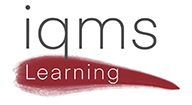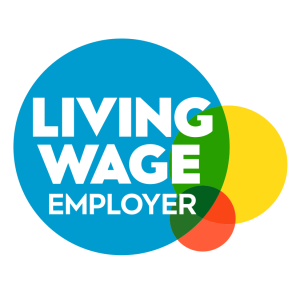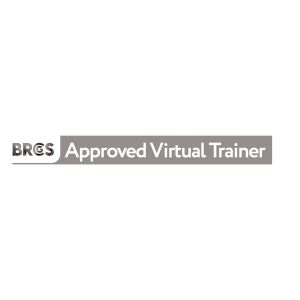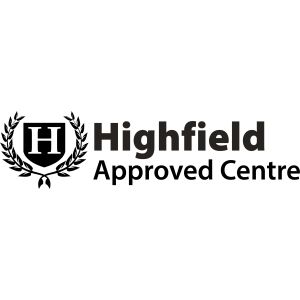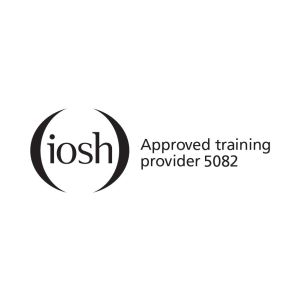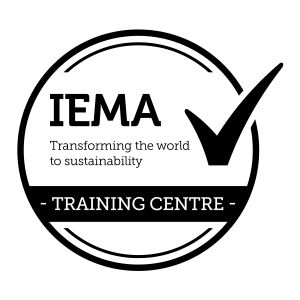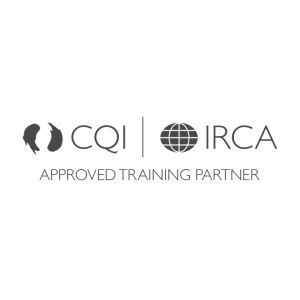This integrated management systems internal auditor programme combines the disciplines of environmental and health & safety management auditing based on the ISO 14001:2015 and ISO 45001:2018 standards. This three-day interactive training programme is designed for those who need to be able to understand and apply recognised principles and techniques of effective management system auditing to environmental and health & safety management systems. The modern management systems auditor cannot rely on procedural auditing, but also needs to be able to audit processes with an emphasis on risk-based thinking. An effective audit will bring benefits to your organisation and ensure the integrated management system (IMS) continues to meet its objectives. Internal auditors need to understand their role and responsibilities and be sufficiently competent in evaluating the IMS effectively. This course focuses delegates on the most important attributes of an IMS and helps them to understand the role of the auditor in its development and continual improvement.Duration3 days, 9.00 – 17.00Who should attend?This course is essential for those who will undertake internal integrated management system audits based on the ISO 14001:2015 and ISO 45001:2018 standards, or for those who will be required to plan, manage and implement internal audit programmes. Other people who will find this course useful are team leaders and supervisors within the IMS, who are looking to broaden their awareness of quality, environmental and occupational health & safety issues in order to understand how they can improve their overall contribution to the success of the business. The course does not require any past auditing or environmental and health & safety management system experience.Course objectivesUpon successful completion of this course, students will: Understand the purpose and benefits of management systems Have a greater understanding of the structure, content and the intent of ISO 14001 and ISO 45001 Be familiar with the terms and definitions used Have a greater understanding of the concept of the process model and apply the process approach Be aware of all stages of the audit cycle Gain the knowledge and skills necessary to plan, conduct, report internal audits of management systems Course content Overview of ISO 14001:2015 environmental and ISO 45001:2018 occupational health & safety management system requirements Plan-Do-Check-Act methodology Environmental and health and safety management principles Risk-based thinking Auditors roles and responsibilities Types of audits Effective auditing tools and techniques and good audit practices Reporting valid findings and managing corrective actions What are the benefitsUpon successful completion delegates will be equipped with the technical skills and knowledge required to plan, conduct and report internal integrated management systems audits, saving both time spent on auditing and cost to your organisation. Delegates will also find the interactive nature of the course, it’s challenging content and extensive use of team-based exercises an enjoyable and effective way to learn.In-House CoursesOffering better value for money, they can be designed to closely match your specific requirements.Style of Delivery and Course LeadersA combination of presentations and guided exercises together with an interactive role-play exercise involving a simulated audit makes this course both highly beneficial and enjoyable for participants. Our course leaders are IRCA/IEMA qualified and experienced quality, environmental and occupational health & safety management systems auditors with extensive practical management experience across a wide range of sectors including manufacturing, service and utilities, professional, local and national government. We have extensive experience working across cultural boundaries, through our work in Europe, Africa, the Middle East, Asia and the Americas.CertificationDelegates successfully completing the course, including examination, will be awarded an iqms Learning Integrated Management System (IMS) Internal Auditor certificate for ISO 14001 and ISO 45001.
Courses | iqms Learning |
This 5 day internationally recognised training program is designed for those people who require a working understanding of the techniques and principles of Lean 6 Sigma to a project management level.DurationTotal of 5 days with the first 2 days being Yellow Belt. 9.00-16.00 (including an exam on days 2 and 5)Who should attend?Lean Six Sigma is used across all sectors and all different sizes of business. Manufacturing Health Services Financial Services Retail Government Services Education Oil and Gas Services Logistics and Supply Chain Services Lean 6 Sigma Green Belt is for those who will ‘lead’ improvement projects. Typically, process problems may be present but the route cause unknown, therefore by using Lean AND Six Sigma methodologies (DMAIC) together with data driven decision making, cause can be established and permanent corrective action implemented.Course objectivesLean Six Sigma provides a comprehensive and proven approach for the positive transformation of any organization by using the principles, methods, tools, and techniques to improve the key processes that make up the organization. Lean Six Sigma specifically offers the following benefits: Improved Quality of products and services Lower amounts of defects, scrap, and rework Improved delivery times Reduced waiting times Reduced costs Improved customer satisfaction Improved employee morale Course content Using previously discussed lean tools together with Six Sigma methodologies the delegates will be able to investigate route cause of process issues. Define – Project scope, benefits of implementation Measure & Analyze – Current state (Value Stream Mapping, 7 Quality Tools) Improve – Identify and pilot improvement Control – Agreed improvement to ensure sustainability What are the benefitsIn order to demonstrate a good understanding of the topics discussed, there is an examination on Day 2 (YB) and Day 5 (GB) of this course. This is a multi-choice open book exam. On successful completion, delegates can call themselves certified Lean 6 Sigma Green Belts and have the knowledge to lead process improvement teams. Having several Green Belt within the organization will give ownership in applying continuous improvement to make their processes Safer, Easier, Better, Faster and Cheaper resulting in improved customer satisfaction and business stability.In-House CoursesOffering better value for money, they can be designed to closely match your specific requirements.Style of Delivery and Course LeadersThis course is delivered in partnership with Lean 6 Services. Our course leaders have extensive industrial experience. They are qualified and experienced Process / Operational Managers with extensive practical management experience across a wide range of sectors including manufacturing, finance, pharmaceuticals, local and national government. We have extensive experience working across cultural boundaries, through our work in Europe, Africa, the Middle East, Asia and the AmericasCertificationDelegates successfully completing the course will be awarded an ILSSI (International Lean Six Sigma Institute) Accredited training certificate.
This intensive, challenging and highly interactive training program is for those people who require an in-depth understanding of the ISO 27001:2022 and associated standards, and the range of auditing techniques and protocols associated with the lead auditor role. Every organisation understands the importance of managing and taking care of its information securely, including legal, contractual and moral requirements to do so. On successfully completing the course, students will have an appreciation of the importance of controlling Information Security in all types of business; a detailed knowledge of ISO 27001:2022 Information Security Requirements and a detailed understanding of the principal requirements for auditing Information Security Management Systems (ISMS).Duration5 Days, 08:30 – 18:00 (days 1-4), 08:30 – 14:00 (day 5)Who should attend?This course satisfies the training requirements for those who wish to register as an ISMS lead auditor with the IRCA. It is also essential for anyone involved managing information and with a responsibility to design, implement and manage an ISMS management system that meets the requirements of ISO 27001:2022. Other people who have found this course useful in the past have been internal ISMS auditors who have been looking to enhance their auditing knowledge and skills, and those looking to achieve formal recognition for the skills and knowledge that they possess.Prior KnowledgeThose attending this course are expected to have knowledge of ISO 27001:2022 as well as experience in auditing and Information Security Management Systems.Course objectivesThe course objectives are to provide interpretation and understanding of Information Security Management Systems (ISMS), ISO 27001:2022 and auditing ISMS. The course is aimed at all levels of personnel from senior management to supervisors, who are concerned with the information security in their organisation. The course will also equip delegates with a sound knowledge of the requirements of ISO 27001:2022 and knowledge of associated standards.Course content Introduction to Information Security Detailed content of ISO 27001:2022 Similarities with other management systems standards Information Security Management Issues including operational control Information Security Audit Skills Practical exercises and feedback. What are the benefitsThe course is designed not only to help people perform capable and value-adding quality audits, but also to develop delegates’ wider understanding of quality management systems design and implementation. In particular it will help delegates get to grips with those issues of ever-increasing importance, such as customer satisfaction, continual improvement and the management of processes. It will help delegates understand how these critical issues can be embedded into the quality management system of an organisation. In-House CoursesOffering better value for money, they can be designed to closely match your specific requirements.Style of Delivery and Course LeadersOur course leaders have unrivalled experience in information security management systems design and implementation, including ISO 27001:2022. They are qualified and experienced auditors with extensive practical management experience across a wide range of businesses. We have extensive experience working across cultural boundaries, through our work in Europe, Africa, the Middle East, Asia and the Americas.CertificationDelegates successfully completing the course, including examination, will be awarded an iqms Learning Lead Auditor certificate.
This highly interactive 3 day internationally recognised training program is designed for those people who require a basic understanding of the techniques and principles of Lean. We do not touch on heavy statistical analysis during Lean Foundation or Practitioner program. Please see Lean 6 Sigma Programs.Duration3 Days, 9.00-16.00 (including exam on the final day)Who should attend?Lean is used across all sectors and all different sizes of business. Manufacturing Health Services Financial Services Retail Government Services Education Oil and Gas Services Logistics and Supply Chain Services Lean Practitioner is intended for those who plan to lead process improvement project and / or problem-solving activities. Ideally, they would be supported by a number of staff who have completed the Lean Foundation course.Course objectivesThis course is for those businesses who feel they do not want or need to use heavy statistical analysis. Lean provides an understanding of a proven approach for the positive transformation of any organization by using the principles, methods, tools, and techniques to improve the key processes that make up the organization. The course is intended for the delegates to ‘think differently’ during their working day to work smarter, not harder. Lean specifically offers the following benefits: Improved Quality of products and services Improves efficiency Improved delivery times Reduced waiting times Reduced costs Improved customer satisfaction Improved employee morale Course contentThis course takes a deeper dive into some of the subjects already discussed in the Foundation element, in addition: Respect for people Building Lean Teams Visual Management Advanced VOC & CTQ Lean Metrics Advance Problem Solving Prioritization tools – Pugh Matrix Value Stream Mapping What are the benefitsIn order to demonstrate a thorough understanding of the topics discussed, there is an examination on Day 3 of this course. This is a multi-choice open book exam. On successful completion, delegates can call themselves certified a Lean Practitioner and have the knowledge to lead process improvement teams. Having several Practitioners within the organization will give ownership in applying continuous improvement to make their processes Safer, Easier, Better, Faster and Cheaper resulting in improved customer satisfaction and business stabilityIn-House CoursesOffering better value for money, they can be designed to closely match your specific requirements.Style of Delivery and Course LeadersThis course delivered in partnership with Lean 6 Services. Our course leaders have extensive industrial experience. They are qualified and experienced Process / Operational Managers with extensive practical management experience across a wide range of sectors including manufacturing, finance, pharmaceuticals, local and national government. We have extensive experience working across cultural boundaries, through our work in Europe, Africa, the Middle East, Asia and the AmericasCertificationDelegates successfully completing the course will be awarded an ILSSI (international Lean Six Sigma Institute) Accredited training certificate.
This 2-day course is designed to equip delegates with the knowledge and practical skills to create your own Quality Management System (QMS). Discover the actions, tools and techniques required to design, implement or improve a QMS including procedural and process information.Duration2 Days, 9.00 – 17.00Who should attend?Typically professionals who: Manage compliance obligations including statutory and regulatory requirements Are responsible for processes within an organisation Manage documentation and records keeping programs and systems Manage or oversee supplier and contractor quality-related performance Manage compliance or quality-related conformance audit programs Conduct strategic management reviews of quality-related performance outcomes Manage or oversee issue resolution relating to product, service or process quality Manage or overview improvement initiatives to enhance some aspect of quality Course objectivesLearn how to bring the necessary discipline and control to your operations with strategies to identify problems, assign resources and evaluate and improve the effectiveness of your system.Course content Understanding the elements of a QMS Establish the scope and purpose of a QMS based on stakeholder needs and expectations Design a QMS framework incorporating process management tools and techniques Undertake GAP analysis and document processes incorporating operational controls Implement or improve a QMS framework using training, communication and performance monitoring tools and techniques Evaluate performance results and implement improvements What are the benefitsAs a contributor to Continuous Personal Development, this course offers valuable day to day knowledge and skills essential to an efficient quality management system.In-House CoursesOffering better value for money, they can be designed to closely match your specific requirements.Style of Delivery and Course LeadersOur course leaders have extensive experience in Quality Management across a wide range of sectors including manufacturing, service and professional organisations including Local, National and International Government. This wide experience enables them to make the course more interesting by using their relevant examples and case studies during workshop discussions. Our team of staff has extensive experience of working across cultural boundaries, through their work in Europe, Africa, the Middle East, Asia and the Americas.CertificationDelegates successfully completing the course will be awarded an iqms Learning certificate of Attainment
This one-day course will provide delegates with a thorough understanding of risk assessment and enable them to use different risk assessment models. This is particularly useful when implementing product safety management systems onsite, and when implementing the requirements of the BRCGS Global Standards.Duration1 Day, 09.00 – 18.00Who should attend?This course is aimed at: Quality and safety management staff at manufacturing, storage and distribution and retail sites Auditors Consultants What are the benefitsThis course forms part of the BRCGS Global Standards Professional suite, a learning programme that will give you international recognition for the key skills and knowledge essential for product safety management.In-House CoursesOffering better value for money, they can be designed to closely match your specific requirements.Style of Delivery and Course LeadersOur course tutors are approved training providers, approved by the BRCGS. They are qualified and experienced with extensive practical knowledge across a wide range of sectors in manufacturing, catering and retail.CertificationDelegates successfully completing the course will be awarded a BRCGS Certificate issued by the BRCGS.
This one-day course will provide delegates with a thorough understanding of root cause analysis (RCA) to know its importance and be able to perform it competently. This is especially helpful when implementing some of the requirements in the BRCGS Global Standards.Duration1 Day, 09.00 – 18.00Who should attend?This course is aimed at: Quality and safety management staff at manufacturing, storage and distribution and retail sites Auditors Consultants Course objectivesDelegates will be able to: Define root cause analysis Understand the difference between symptoms and root cause analysis Understand the role and importance of RCA in compliance with the BRCGS Global Standards Explore some common methods of undertaking root cause analysis Be able to perform a RCA and document it effectively What are the benefitsThis course forms part of the BRCGS Global Standards Professional suite, a learning programme that will give you international recognition for the key skills and knowledge essential for product safety management.In-House CoursesOffering better value for money, they can be designed to closely match your specific requirements.Style of Delivery and Course LeadersOur course tutors are approved training providers, approved by the BRCGS. They are qualified and experienced with extensive practical knowledge across a wide range of sectors in manufacturing, catering and retail.CertificationDelegates successfully completing the course will be awarded a BRCGS Certificate issued by the BRCGS.
Build the practical skills and knowledge you need to develop an Environmental Management System (EMS) with this training course. Discover the actions, tools and techniques required to implement or improve an inherited EMS, including procedural and process information.Duration2 Days, 09.00 – 17.00Who should attend? People involved in planning and/or coordinating the implementation process for a system addressing environmental issues People who have been assigned the task of establishing or inheriting an EMS Decision-makers in the implementation process Those wanting to understand the implementation process Course objectives Identify environmental aspects and impacts that create the baseline from which an EMS is created and developed Recognise cultural change and management issues, which play a role in the implementation process Establish the initial steps to be taken in developing an EMS Develop skills in the preparation of written procedures and required documentation Recognise the appropriate resources and capabilities necessary for maintaining an EMS Course content What is an EMS How to Implement & Improve an EMS The ISO 14001 model and an ISO 14001:2015 Standard Revision Overview Developing an Environmental policy Common features of an EMS Identifying environmental risks Managing environmental improvement actions Operational controls and emergency planning Training & communication Developing and maintaining EMS documentation Monitoring, measuring and reporting Auditing and management review Cultural change and implementation Maintaining an EMS to achieve continual improvement What are the benefitsThis course offers valuable, practical knowledge and skills essential to design , implement and manage an efficient environmental management system.In-House CoursesOffering better value for money, they can be designed to closely match your specific requirements.Style of Delivery and Course LeadersOur course leaders have extensive experience in Management Systems across a wide range of sectors including manufacturing, service and professional organisations including Local, National and International Government. This wide experience enables them to make the course more interesting by using their relevant examples and case studies during workshop discussions. Our team of staff has extensive experience of working across cultural boundaries, through their work in Europe, Africa, the Middle East, Asia and the Americas.CertificationDelegates will receive a Certificate of Attainment
This course will provide delegates with an in-depth understanding of the revisions to the format and content of the Standard requirements for Issue 9. It is designed to equip delegates with the skills and knowledge to successfully implement the changes to the Standard on-site.Duration1 Day, 09.00 – 17.00Who should attend? Senior Management and their representatives Site Technical & Quality Managers Trainers and Consultants Current Auditors of the BRCGS Global Standards for Food Issue 8 Course objectivesThis course will provide delegates with details of the changes to the Standard for Issue 9, as well as a review of audit and protocol expectations to ensure the effectiveness and consistency of audits against the Standard.Course content Recognise the changes to the protocol of the Standard Understand the changes to the existing requirements Learn what to expect from the Food 9 Audit Understand what sites need to do to implement the new requirements In-House CoursesOffering better value for money, they can be designed to closely match your specific requirements.Style of Delivery and Course LeadersOur course tutors are approved training providers, approved by BRCGS, CQI & IRCA and Highfields Qualification. They are qualified and experienced with extensive practical knowledge across a wide range of sectors including food manufacturing, catering and retail.CertificationDelegates successfully completing the course will be awarded a BRCGS Certificate issued by the BRCGS.
Culture has been widely seen as both the cause of many Food Safety shortcomings and the solution to ensuring consistently high standards of Product Safety in Food and associated industries. From Retail to Manufacturing, in all sectors of the Food & Drink industry, establishing and demonstrating a good Product Safety culture is now seen as a fundamental requirement to reputable organisations. Attending this 1-day course participants will gain a fundamental understanding of the importance of a positive product safety culture, the critical issues that affect it and how to begin the development process to establish of positive culture within your organisation.Duration1 Day, 08.45 – 18.00Who should attend?Consultants/Auditors/Technical/HR/Senior Management who lead on culture, Operational, Technical & Quality staff, BRCGS & Industry Professionals or anyone involved in implementing and maintaining Product Safety Culture.Course objectives Describe the concept of Product Safety Culture and why a positive culture is important to ensuring product safety and integrity Identify what the standards require, and the function of the Product Safety Culture Plan within a QMS Recognize the link between behaviour and Product Safety Culture and how it underpins product safety assurance Discuss how to measure an organisation's Product Safety Culture through the use of tools and techniques Develop a sustainable Product Safety Culture action plan and how to engage staff to support it Course content The criticality of Food Safety Culture The role of senior management The impact of attitudes and behaviours Developing your own Product Safety Culture Plan What are the benefitsThis BRCGS course is industry-focused, considering organisational culture, leadership and behavioural concepts; inclusive of and generic to all BRCGS Global Standards, in addition to the global market for application to any manufacturing facility - regardless of business size or whether sites have a product scope of food or non-food related goods/ servicesIn-House CoursesOur course tutors are Approved Training Providers for BRCGS. They have extensive practical experience across a wide range of sectors including manufacturing and retail.Style of Delivery and Course LeadersAvailable on an in-house basis use this course to deliver a consistent message across your teams.CertificationTo complete the course, participants will need to submit a product safety plan as a workplace assignment, meeting the assessment criteria with 75% as a passing grade. Delegates successfully completing the course will be awarded a BRCGS Certificate issued by the BRCGS.
The Highfields Level 4 award course is designed to allow the learner to understand the importance of how to develop, implement and evaluate CODEX based HACCP food safety management procedures.Duration5 Days, 09.00 – 17.15Who should attend?This course is aimed at learners who are working at management level within food manufacturing and catering environments, quality assurance staff or members of the HACCP team. This qualification would also be useful for trainers, auditors, enforcers and other food safety professionals.Course objectivesThe objective of the qualification is to give delegates the skills to lead in the development and implementation of a HACCP system, to critically evaluate HACCP plans and to understand the importance of having an effective HACCP system in place.Course content HACCP and Legislation Preparing for HACCP Pre-requisite Programmes The 7 Codex HACCP Principles HACCP Documentation Critical Control Points Critical Limits Monitoring Corrective Action Maintaining HACCP The HACCP Team Hazard Analysis Implementation Verification Validation Review What are the benefitsOn successful completion, delegates will have a good awareness of HACCP legislation and principles and will understand: The Importance of HACCP based food safety management procedures How to manage the implementation of HACCP based food safety management procedures How to develop and evaluate HACCP based food safety management procedures Style of Delivery and Course LeadersOur course tutors have substantial experience in the understanding of HACCP and related legislation. They are qualified and experienced with extensive practical knowledge across a wide range of sectors in manufacturing, catering and retail.CertificationDelegates successfully completing the Highfields Level 4 Award in HACCP for Management (CODEX Principles) (RQF) course and examination will be awarded a Highfields Qualifications certificate. Qualification Number: 603/2731/5 The RQF is a qualification framework regulated by Ofqual. It is also suitable for delivery in Wales and is regulated by Qualifications Wales.
This integrated management systems internal auditor programme combines the disciplines of quality and environmental management systems. The course is based on auditing to the ISO 9001:2015 and ISO 14001:2015 standards. This interactive three-day training programme is designed for those who need to be able to understand and apply recognised principles and techniques of effective management system auditing for quality and environmental management systems. The modern management systems’ auditor needs to be trained not only on procedural auditing, but also be able to audit processes with an emphasis on a risk-based approach. An effective audit will bring benefits to your organisation and ensure the integrated management system (IMS) continues to meet its objectives. Internal auditors need to understand their role and responsibilities and be sufficiently competent in evaluating the IMS effectively. This course focuses delegates on the most important attributes of an IMS and helps them to understand the role of the auditor in its development and continual improvement.Duration3 days, 9.00 – 17.30Who should attend?This course is an essential for those who will undertake internal integrated management system audits based on the ISO 9001:2015 and ISO 14001:2015 standards, or who will be required to plan, manage and implement internal audit programmes. Other people who find this course useful are team leaders and supervisors within the IMS, who are looking to broaden their awareness of quality and environmental issues in order to understand how they can improve their overall contribution to the success of the business.Course objectivesUpon successful completion of this course, students will: Understand the purpose and benefits of management systems Have a greater understanding of the structure, content and the intent of ISO 9001 and ISO 14001:2015 Be familiar with the terms and definitions used Have a greater understanding of the concept of the process model and apply the process approach Be aware of all stages of the audit cycle Gain the knowledge and skills necessary to plan, conduct, report internal audits of management systems Course content Overview of ISO 9001:2015 quality and ISO 14001:2015 environmental Management System requirements Plan-Do-Check-Act methodology Quality and environmental management principles Risk-based thinking Auditors roles and responsibilities Types of audits Effective auditing tools and techniques and good audit practices Reporting valid findings and managing corrective actions What are the benefitsSuccessful delegates will be equipped with the technical skills and knowledge required to plan, conduct and report internal integrated management systems audits, saving both time spent on auditing and cost to your organisation. Delegates also find the interactive nature of the course, it’s challenging content and extensive use of team-based exercises an enjoyable and effective way to learn.In-House CoursesOffering better value for money, they can be designed to closely match your specific requirements.Style of Delivery and Course LeadersOur course leaders are quality management professionals, as well as being qualified, registered and experienced auditors. They have extensive knowledge across a wide range of sectors including manufacturing, finance, pharmaceuticals, local and national government. They have all cut their teeth as successful change agents within high profile organisations, and fully understand the range of technical, legislative and people challenges that face those with a responsibility for delivering real quality improvements.CertificationDelegates successfully completing the course will be awarded an iqms Learning Integrated Management System (IMS) Auditor certificate.
This highly interactive 1 day internationally recognised training program is designed for those people who require a basic understanding of the techniques and principles of Lean. We do not touch on heavy statistical analysis during Lean Foundation or Practitioner program. Please see Lean 6 Sigma Programs.Duration1 Days, 9.00-16.00Who should attend?Lean is used across all sectors and all different sizes of business. Manufacturing Health Services Financial Services Retail Government Services Education Oil and Gas Services Logistics and Supply Chain Services Lean Foundation is the first step to becoming a ‘Practitioner’ and is the beginning of the journey of behavioural and cultural change. All employees can benefit from this course enabling them to understand the methodologies and assist those who are involved in process improvement activities.Course objectivesThis course is for those businesses who feel they do not want or need to use heavy statistical analysis. Lean provides an understanding of a proven approach for the positive transformation of any organization by using the principles, methods, tools, and techniques to improve the key processes that make up the organization. The course is intended for the delegates to ‘think differently’ during their working day to work smarter, not harder. Lean specifically offers the following benefits: Improved Quality of products and services Improves efficiency Improved delivery times Reduced waiting times Reduced costs Improved customer satisfaction Improved employee morale Course content Lean basics – The principles Lean tools - 5s, Waste, Single piece flow, Process levelling, Standardization Process Stapling – Process Flow Voice of the customer and Critical to Quality Kaizen Activities / Mistake Proofing / Quick Change Over (SMED) Just in Time Total Productive Maintenance Problem Solving What are the benefitsThere is no examination during this course, as the delegates are fully engaged throughout the day. At the end of the course, they will be equipped with the knowledge required to understand basic process improvement techniques, their benefits and some of the terminology used in readiness to assist their co-workers. Participation is the only requirement.In-House CoursesOffering better value for money, they can be designed to closely match your specific requirements.Style of Delivery and Course LeadersThis course is delivered in partnership with Lean 6 Services. Our course leaders have extensive industrial experience. They are qualified and experienced Process / Operational Managers with extensive practical management experience across a wide range of sectors including manufacturing, finance, pharmaceuticals, local and national government. We have extensive experience working across cultural boundaries, through our work in Europe, Africa, the Middle East, Asia and the AmericasCertificationDelegates successfully completing the course will be awarded an ILSSI (International Lean Six Sigma Institute) Accredited training certificate.
This intensive one-day course is designed to equip delegates with an appreciation and understanding of the basics of carbon footprints and carbon accounting, how to calculate their own company footprint and how to simply manage and reduce the size of their carbon footprint. Larger businesses are legally required to calculate their carbon footprint for the carbon emissions they are directly responsible for (Scope 1) and the emissions the electricity supplied (Scope 2). Scope 3 emissions is the largest potential category for many businesses and includes the supply chain which to date has been voluntary to calculate. Many large businesses are focusing their NetZero approach to include Scope 3 emissions so companies are now asking all of the businesses they deal with to supply data on their own carbon emissions. If you are part of a supply chain for a larger business and are being asked information on your own carbon footprint then this is the course to help you.Duration1 Day, 09.00 - 17.00Who should attend?This course is recommended for individuals who are responsible for understanding and reliably calculating their company’s carbon footprint, for business owners who need to understand about carbon footprints and respond to their customer needs. It is also suitable for environmental managers given this responsibility or anyone who needs to increase their specific knowledge of this topic such as those who are involved in managing the supply chain (e.g., Procurement) and for Directors who find carbon accountable is now part of their remit.Course objectivesThis course aims to provide an understanding of terminology and definitions linked to carbon management. This course is an intensive workshop that focuses on the practical skills required to create a carbon footprint report and begin their route to NetZero.Course content Understand carbon emissions terminology Understand what a carbon footprint is and be familiar with the Greenhouse Gas Accounting Protocol Measure your business carbon footprint Create a carbon reduction plan Carbon reduction technology options What are the benefitsOn successful completion, delegates will have improved their knowledge of carbon management and be able to start to develop a NetZero plan for their business and be able to talk knowledgeably with their stakeholders including their customers and supply chain.In-House CoursesThis course is also available on an in-house basis which can allow courses to be modified to more closely match your specific business requirements. The course can be delivered either virtually or face-to-face. Please contact us for further information.Style of Delivery and Course LeadersOur course leaders have substantial experience in carbon and energy management. They are qualified and experienced with extensive practical management experience across a wide range of sectors including power distribution, manufacturing, engineering, finance, local and national government. We have extensive experience working across cultural boundaries, through our work in Europe, Africa, the Middle East, Asia and the Americas.CertificationAll delegates will be awarded a certificate verifying attendance and completion of the course.
This one-day course is designed to give delegates an introduction to energy management principles and practical skills which can be applied in a business setting. This course also provides energy technology options which could be available for your business to implement, for example solar or heat pumps. As the drive to reduce carbon emissions increases and with energy costs rising dramatically for businesses, ignoring energy management principles could mean spending more money on energy than your competitors and more than what is necessary to continue with your business operations. This course is designed to start your business along the path of understanding energy management principles and reducing energy usage leading to reduced costs.Duration1 Day, 09.00 - 17.00Who should attend?This course does not require any prior knowledge and is intended to give an introduction to energy management for non-energy managers or non-specialists in this field. It is recommended for individuals who have been given responsibilities for energy management as part of their current role, or are taking on this responsibility on behalf of their business. It is also suitable for managers who have been asked to participate in energy reduction in their business, as well as senior managers and directors seeking further knowledge on this increasingly important subject.Course objectivesThis course aims to provide an introduction to energy management for business so that delegates understand the fundamentals of energy use, are able to consider some practical options for energy solutions and introduce them to the basics of energy managementCourse content What is Energy Management? What is Energy and how is it delivered? Energy Bills and Commercial Contracts Energy and Carbon Policy Energy Technology and Application Energy Management Process What are the benefitsOn successful completion, delegates will have improved their knowledge of energy management. They will be able to develop a basic energy strategy and policy and be able to understand some options for reducing energy in their business which should lead to overall cost reductions for energy use.In-House CoursesThis course is also available on an in-house basis which can allow courses to be modified to more closely match your specific business requirements. The course can be delivered either virtually or face-to-face. Please contact us for further information.Style of Delivery and Course LeadersOur course leaders have substantial experience in carbon and energy management. They are qualified and experienced with extensive practical management experience across a wide range of sectors including power distribution, manufacturing, engineering, finance, local and national government. We have extensive experience working across cultural boundaries, through our work in Europe, Africa, the Middle East, Asia and the Americas.CertificationAll delegates will be awarded a certificate verifying attendance and completion of the course.
Increasing numbers of individuals suffer adverse reactions every year from the ingestion of allergens in food. This qualification is aimed at learners responsible for the purchase, delivery, production and service of food in the catering industry. It is also suitable for those owning/managing a smaller catering business.Duration1 Day, 09.00 – 17.00Who should attend?Managers, Supervisors or Staff with a responsibility for Food Service Safety and Quality.Course objectivesLearners achieving this qualification will have knowledge and understanding relating to the control of food ingredients, including allergens, at all stages of food purchase and production.Course content Understand the manager’s role in ensuring that food ingredients and allergens are effectively managed Understand procedures relating to the communication of ingredient information from supplier to consumer Understand the importance of implementing practical controls to prevent contamination and cross contamination from allergenic ingredients Understand methods for managing ingredient controls and procedures What are the benefitsThis qualification is supported by Allergy UK, who regard it as suitable staff training for catering outlets that wish to apply for their Allergy Aware Scheme.Style of Delivery and Course LeadersOur course tutors have substantial experience in the field of allergen management and control. They are qualified and experienced with extensive practical knowledge across all areas of the food industry.CertificationDelegates successfully completing the HABC Level 3 Award in Allergen Management for Catering (RQF) course and examination will be awarded a Highfield Qualifications certificate. Qualification Number: 603/1720/6 The RQF is a qualification framework regulated by Ofqual. It is also suitable for delivery in Wales and is regulated by Qualifications Wales.
The new Global Standard for Storage & Distribution Issue 4 was launched on 2nd November 2020. It ensures the quality and safety of products during their storage and distribution throughout the supply chain. This new Standard is specifically designed for logistics operations dealing with Food, Packaging, and Consumer Products.Duration1 Day, 09.00 – 18.00Who should attend?Technical & quality managers and their teams from manufacturing or retail, BRCGS Professionals who are familiar with and/ or have attended a Storage and Distribution Issue 3 course.Course objectivesThis one-day course will provide delegates with an in-depth understanding of the revisions to the format and content of Issue 4, including particular reference to the changes made in response to the issues and concerns of the logistics industry. The course is designed to equip delegates with the skills and knowledge to successfully implement Issue 4 of the standard at their site. At the end of the course, delegates will be able to: Identify the aims of the BRCGS scheme Explain how to meet the requirements of the Standard Describe what to expect from your BRCGS audit Recognise the changes to the protocol of the Standard Utilise and understand the benefits of the BRCGS resources Identify and explain changes to Standard from Issue 3 to Issue 4 Course contentThis course is developed in modules and formatted for virtual or face to face learning. This blended approach reinforces understanding with individual and group activities including case study exercises and a post course assessment.What are the benefitsOn successful completion, delegates will understand the reasons for changes to the standard, including industry developments, changes to the format as well as changes to existing clauses, new requirements and clauses. Delegates will know how the audit process should now be carried about and reported and be able to explain how the changes will benefit retailers, manufacturers, auditors and consumers.In-House CoursesOffering better value for money, they can be designed to closely match your specific requirements.Style of Delivery and Course LeadersOur course tutors are approved training providers, approved by BRCGS, CQI & IRCA and RSPH. They are qualified and experienced with extensive practical knowledge across a wide range of sectors including food manufacturing, catering and retail.CertificationThis BRCGS course carries the following Assessment: 25 question exam; Pass mark 60%. Delegates successfully completing the course will be awarded a BRCGS Certificate issued by the BRCGS.
This highly interactive 1 day internationally recognised training program is designed for those people who require a basic understanding of the techniques and principles of Lean 6 Sigma.Duration1 Days, 9.00-16.00Who should attend?Lean Six Sigma is used across all sectors and all different sizes of business. Manufacturing Health Services Financial Services Retail Government Services Education Oil and Gas Services Logistics and Supply Chain Services Lean 6 Sigma White Belt is the beginning of the journey of behavioural and cultural change. All employees can benefit from this course enabling them to understand the methodologies and assist those who are involved in process improvement activities.Course objectivesLean Six Sigma provides a comprehensive and proven approach for the positive transformation of any organization by using the principles, methods, tools, and techniques to improve the key processes that make up the organization. Lean Six Sigma specifically offers the following benefits: Improved Quality of products and services Lower amounts of defects, scrap, and rework Improved delivery times Reduced waiting times Reduced costs Improved customer satisfaction Improved employee morale Course content Brief history of Lean and Six Sigma 5s (Workplace organization) 8 Typical Wastes found in most processes Visual management Standardization Kaizen Activities / Plan, Do, Check, Act (Adjust) Basic Problem Solving What are the benefitsThere is no examination during this course, as the delegates are fully engaged throughout the day. At the end of the course, they will be equipped with the knowledge required to understand basic process improvement techniques, their benefits and some of the terminology used in readiness to assist their co-workers.In-House CoursesOffering better value for money, they can be designed to closely match your specific requirements.Style of Delivery and Course LeadersThis course is delivered in partnership with Lean 6 Services. Our course leaders have extensive industrial experience. They are qualified and experienced Process / Operational Managers with extensive practical management experience across a wide range of sectors including manufacturing, finance, pharmaceuticals, local and national government. We have extensive experience working across cultural boundaries, through our work in Europe, Africa, the Middle East, Asia and the AmericasCertificationDelegates successfully completing the course will be awarded an ILSSI (International Lean Six Sigma Institute) Accredited training certificate.
The new course covers changes introduced to Food Labelling requirements by the 2011 European Directive on the provision of food information. It explains the transitional arrangements on the new rules. These new requirements will have a major impact upon the information provided on food labels for consumers. The course is designed to provide candidates with the knowledge of the changes to help food manufacturers prepare for and comply with the law.Duration1 Day, 09.00 – 17.00Who should attend?The course is intended for Quality/Technical Managers and personnel as well as Label Designers and Food Marketing staff.Course objectivesThis course explains the New Food Labelling Legislation in force from December 2014.Course content Introduction to Food Labelling Current Legislation Food labelling Regulations Key changes Labels – current & New rules Origin labelling Responsibilities – Food Business Operators Understand how communication can reduce the risk of adverse reactions. What are the benefitsOn successful completion, delegates will have improved understanding the new Food Labelling Legislation. Delegates will also be able to identify any current weaknesses in their labelling systems and update these in line with the new laws.Style of Delivery and Course LeadersOur course tutors have substantial experience in the field of Food Law. They are qualified and experienced with extensive Food Law experience across a wide range of sectors including manufacturing and retail.CertificationAll delegates will be awarded a certificate verifying attendance and completion of the course.
This course has been designed to enable delegates to gain a full understanding of the general principles of the Standard and how to comply with the requirements. Delegates will also gain an understanding of what to expect during the process of certification and actions needed prior to, during and after the audit.Duration2 Day, 09.00 – 18.00Who should attend?This course is aimed at: Technical and Quality managers and their teams from manufacturing and retailing sites Retailers Consultants BRCGS Global Standard professionals Course objectives To provide delegates with an understanding of The scope of companies and products covered by the Standard What is required to comply with the requirements of the Standard Preparing for an audit to the Standard The protocol for audits to the Standard What are the benefitsThis course forms part of the BRCGS Global Standards Professional suite, a learning programme which will give you international recognition for the key skills and knowledge essential for product safety management.In-House CoursesOffering better value for money, they can be designed to closely match your specific requirements.Style of Delivery and Course LeadersOur course tutors have approved training providers, approved by the BRCGS. They are qualified and experienced with extensive practical knowledge across a wide range of sectors in manufacturing, catering and retail.CertificationDelegates successfully completing the course and examination will be awarded a BRCGS Certificate issued by the BRCGS.
The Highfields Level 2 Award in HACCP for Food Manufacturing (RQF) is aimed at those working in a food manufacturing environment. The qualification is intended for delegates already working in food manufacturing and those who are preparing to work in the industry. This qualification covers the principles of HACCP including the procedures required to develop HACCP and how the principles are applied in a food production environment.Duration1 Day, 09:30 – 17:00Who should attend?The Level 2 Certificate in HACCP is appropriate for all persons employed in food and food related businesses that need to have an understanding of HACCP principles.Course objectivesThe objective of the qualification is to support those who are, or will be part of a HACCP (hazard analysis and critical control points) team within a manufacturing environment.Course content Introduction to HACCP Prerequisite programs Intended use of products Process flow diagrams Hazard analysis Determining Critical control Points Determining Critical limits HACCP Monitoring Corrective actions Verification and validation HACCP Documentation HACCP Review What are the benefitsOn successful completion, delegates will have a good awareness of HACCP principles. Delegates will be able to identify the procedures required to develop HACCP and understand how the principles are applied in a food production environment.Style of Delivery and Course LeadersOur course tutors have substantial experience in the understanding of HACCP and related legislation. They are qualified and experienced with extensive practical across a wide range of sectors in manufacturing, catering and retail.CertificationDelegates successfully completing the Highfields Level 2 HACCP for Manufacturing (RQF) course and examination will be awarded a Highfields Qualifications certificate. Qualification Number: 603/2196/9 The RQF is a qualification framework regulated by Ofqual. It is also suitable for delivery in Wales and is regulated by Qualifications Wales.
The Global Standard for Storage & Distribution Issue 4, launched on 2nd November 2020, reflects best practices and facilitates a process of continual improvement through well-designed risk-based product safety management systems. It ensures the quality and safety of products during storage and distribution throughout the supply chain. This new Standard is specifically designed for logistics operations dealing with Food, Packaging, and Consumer Products.Duration2 Days, 09.00 – 18.00Who should attend? Existing auditors of Issue 3 of the Storage & Distribution standard Certification Body Scheme Managers Consultants Technical & Quality Managers from sites who wish to gain a deeper understanding of the Global Standard’s audit process and changes from Issue 3. Course objectivesThe intention of the course is to enable delegates to gain a full understanding of the principles and requirements of the Standard and changes from Issue 3, including fundamental clauses, and statements of intent. Delegates will also review how to undertake a Global Standards audit, including planning and reporting of the audit. At the end of the course, delegates will be able to: List the aims of the BRCGS scheme Describe the format, scope and structure of the Standards Effectively audit the requirements of the Standard Complete the BRCGS audit and write the audit report Identify and explain changes to the Standard from Issue 3 – Issue 4 Utilise and understand the benefits of the BRCGS resources Course contentThis course is developed in modules and formatted for virtual or face to face learning. This blended approach reinforces understanding with individual and group activities including case study exercises and a post-course assessment.In-House CoursesOffering better value for money, they can be designed to closely match your specific requirements.Style of Delivery and Course LeadersOur course tutors have approved training providers, approved by BRCGS, CQI & IRCA and RSPH. They are qualified and experienced with extensive practical knowledge across a wide range of sectors including food manufacturing, catering and retail.CertificationThis BRCGS course carries the following Assessment: 50 question exam: pass mark 75%. Delegates successfully completing the course will be awarded a BRCGS Certificate issued by the BRCGS.
The new Global Standard for Storage & Distribution Issue 4 was launched on 2nd November 2020. It ensures the quality and safety of products during their storage and distribution throughout the supply chain. The new Standard is specifically designed for logistics operations dealing with Food, Packaging, and Consumer Products.Duration2 Days, 09.00 – 18.00Who should attend?Technical & Quality Managers and their teams from manufacturing, retailing, and BRCGS Professionals.Course objectivesThis two-day course will provide delegates with an in-depth understanding of the revisions to the format and content of Issue 4, including particular reference to the changes made in response to the issues and concerns of the logistics industry. The course is designed to equip delegates with the skills and knowledge to successfully implement Issue 4 of the standard at their site. At the end of the course, delegates will be able to: Identify the aims of the BRCGS scheme Explain how to meet the requirements if the Standard Describe what to expect from your BRCGS audit Utilise and understand the benefits of the BRCGS resources Course contentThe intention of the course is to enable delegates to gain a full understanding of the general principles of the Standard, and how to comply with the requirements. Delegates will also gain an understanding of what to expect during the process of certification, and actions needed prior to, during and after the audit. This course is developed in modules and formatted for virtual or face to face learning. This blended approach reinforces understanding with individual and group activities including case study exercises and a post-course assessment.In-House CoursesOffering better value for money, they can be designed to closely match your specific requirements.Style of Delivery and Course LeadersOur course tutors are approved training providers, approved by BRCGS. They are qualified and experienced with extensive practical knowledge across a wide range of sectors including food manufacturing, catering and retail.CertificationThis BRCGS course carries the following Assessment: 50 question exam: pass mark 75%. By understanding the requirements delegates successfully completing the course will be awarded a BRCGS Certificate issued by the BRCGS.
Aimed at all organisations in the food and feed industries, regardless of size or sector ISO 22000:2018 translates Food Safety Management into a continuously improving process. It takes a precautionary approach to food safety by helping to identify, prevent and reduce foodborne hazards in the food and feed chains. The 2018 version brings clarity of understanding and offers a dynamic control of food safety hazards combining the following generally recognised key elements: interactive communication, systems management, Prerequisite Programmes (PRPs) and the principles of Hazard Analysis and Critical Control Points (HACCP). This intensive, challenging and highly interactive CQI and IRCA Certified training program is for those people who require an in-depth understanding of the knowledge and skills required to perform first, second and third-party audits of Food Safety Management Systems (FSMS) against ISO 22000. Many of the skills acquired on this course can be applied to auditing other Food Safety Management Systems.Please note - If you are looking for a public course and your initial interest is ISO 22000, the FSSC 22000 Lead Auditor course may still be suitable as the course covers ISO 22000 with additional food safety requirements.Duration5 Days, 08:30 – 17:30 (Days 1 to 4) 08:30 – 15:30 (Day 5)Who should attend?This course satisfies the training requirements for those who wish to register as a food safety system lead auditor with the CQI and IRCA Certified training under the food safety auditor scheme Food safety professionals with a responsibility to design, implement and manage a Food Safety Management System that meets the requirements of ISO 22000 Food safety auditors who have been looking to enhance their auditing knowledge and skills or looking to achieve formal recognition for the skills and knowledge that they possess. Auditors, from any organisation in the food chain, who need to lead audits and audit teams, both in their own organisation and in others, such as suppliers, where there is a requirement to audit Food Safety Management Systems against ISO 22000Course content PDCA cycle and its use within an FSMS Terms and definition used in ISO 22000 pre-requisite standards Maintaining and retaining documented information The relationship between ISO 22000 & ISO 22002 series of pre-requisite standards 1st, 2nd and 3rd party audits Benefits of third party accredited certification The audit processes Auditor responsibilities Planning and conducting an audit Auditing Food Safety Management System requirements Generating audit findings Reporting and following up the audit Discuss the content and relationship of FSSC with ISO 22000 Discuss the broadened pre-requisites of ISO 22000 and the additional requirements to meet GFSI recognised certification What are the benefitsThis course is designed not only to help people perform food safety audits, but also to develop delegates’ wider understanding of food safety management systems design and implementation. It will help delegates understand how HACCP can be embedded into the Food Safety Management System of an organisation. Successful completion of the course and the achievement of the 50% pass mark will satisfy the formal training requirements for those wishing to register as an Auditor, Lead Auditor or Principal Auditor with CQI and IRCA Certified training under the food safety auditor scheme.In-House CoursesOffering better value for money, they can be designed to closely match your specific requirements.Style of Delivery and Course LeadersOur course leaders are professional practitioners in the food sector, as well as being qualified, registered and experienced auditors. They have extensive knowledge across a wide variety of food industry organisations such as primary food processing, food manufacturing, retailing and catering. They have cut their teeth within high profile organisations, and fully understand the range of technical, legislative and people challenges that face those with a responsibility for delivering robust food safety management systems and customer confidence.CertificationDelegates successfully completing the course, including the examination will be awarded a CQI and IRCA training accredited certificate. (2339)
